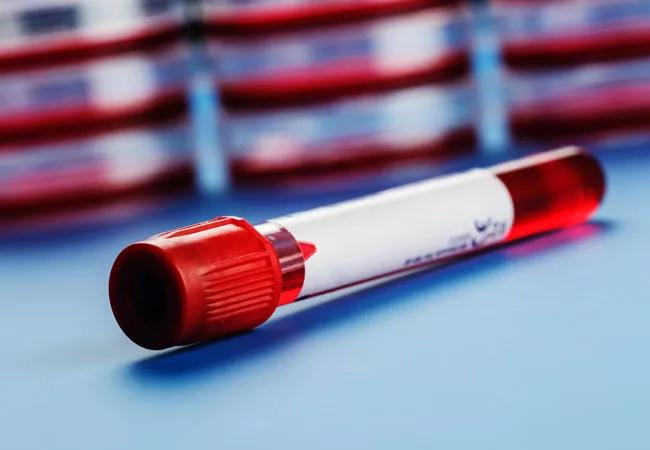Deep sequencing may help map cancer genetics

Cleveland Clinic researchers are helping build a database that could lead to the development of a blood test for early-stage cancer. The work is part of a multicenter clinical trial — the Circulating Cell-free Genome Atlas (CCGA) — that promises to shed new light on the biology of cancer at its initial stages. The Center for Clinical Genomics team, along with primary investigators Eric Klein, MD, Chair of Cleveland Clinic Glickman Urological & Kidney Institute, and Mikkael Sekeres, MD, MS, Director of Cleveland Clinic Cancer Center’s Leukemia Program, will help recruit more than 1,000 Cleveland Clinic patients over the age of 20.
Advertisement
Cleveland Clinic is a non-profit academic medical center. Advertising on our site helps support our mission. We do not endorse non-Cleveland Clinic products or services. Policy
The observational study, funded by GRAIL Inc., will collect samples from at least 7,000 donors with a diagnosis of cancer (blood and tumor tissue samples) and from at least 3,000 donors who do not have a diagnosis of cancer (blood samples) to characterize the population variation in cancer and non-cancer subjects. The research team will use deep sequencing of cell-free nucleic acids (cfNAs) in the blood, an emerging biomarker for earlier cancer detection, to potentially develop a detailed atlas of cancer genetics.
“The complex nature of cancer makes it difficult to identify biomarkers for detection of early-stage cancer before symptoms appear,” says Dr. Sekeres. “The CCGA study will expand our knowledge about genomic profiles in cancer patients.”
“Genomics and personalized medicine are the path forward for treating cancer,” says Dr. Klein. “The CCGA study aims to develop models which distinguish people with and without cancer with a long-term goal of detecting cancers before symptoms even occur. When cancer is diagnosed at an early stage and is highly localized, it is much more easily treated and cured.”
To participate, subjects will complete a health questionnaire, have a one-time blood draw and allow study staff to collect information from their medical records for five years. In addition, those with cancer will allow study staff to collect tumor tissue from their biopsy or surgery that would otherwise not be used.
“Clinical trials are crucial for medical innovation,” says W. H. Wilson Tang, MD, Medical Director of the Center for Clinical Genomics. “This study marks an exciting frontier in clinical research.”
Advertisement
For more information, view the study webpage or contact the Center for Clinical Genomics CCGA study team at 216.445.2164 or CCGAStudy@ccf.org.
Advertisement
Advertisement

Radiation therapy helped shrink hand nodules and improve functionality

Standard of care is linked to better outcomes, but disease recurrence and other risk factors often drive alternative approaches

Phase 1 study demonstrates immune response in three quarters of patients with triple-negative breast cancer

Multidisciplinary teams bring pathological and clinical expertise

Genetic variants exist irrespective of family history or other contributing factors

Study shows significantly reduced risk of mortality and disease complications in patients receiving GLP-1 agonists

Structured interventions enhance sleep, safety and caregiver resiliency in high-acuity units

Addressing rare disease and challenging treatment course in an active young patient